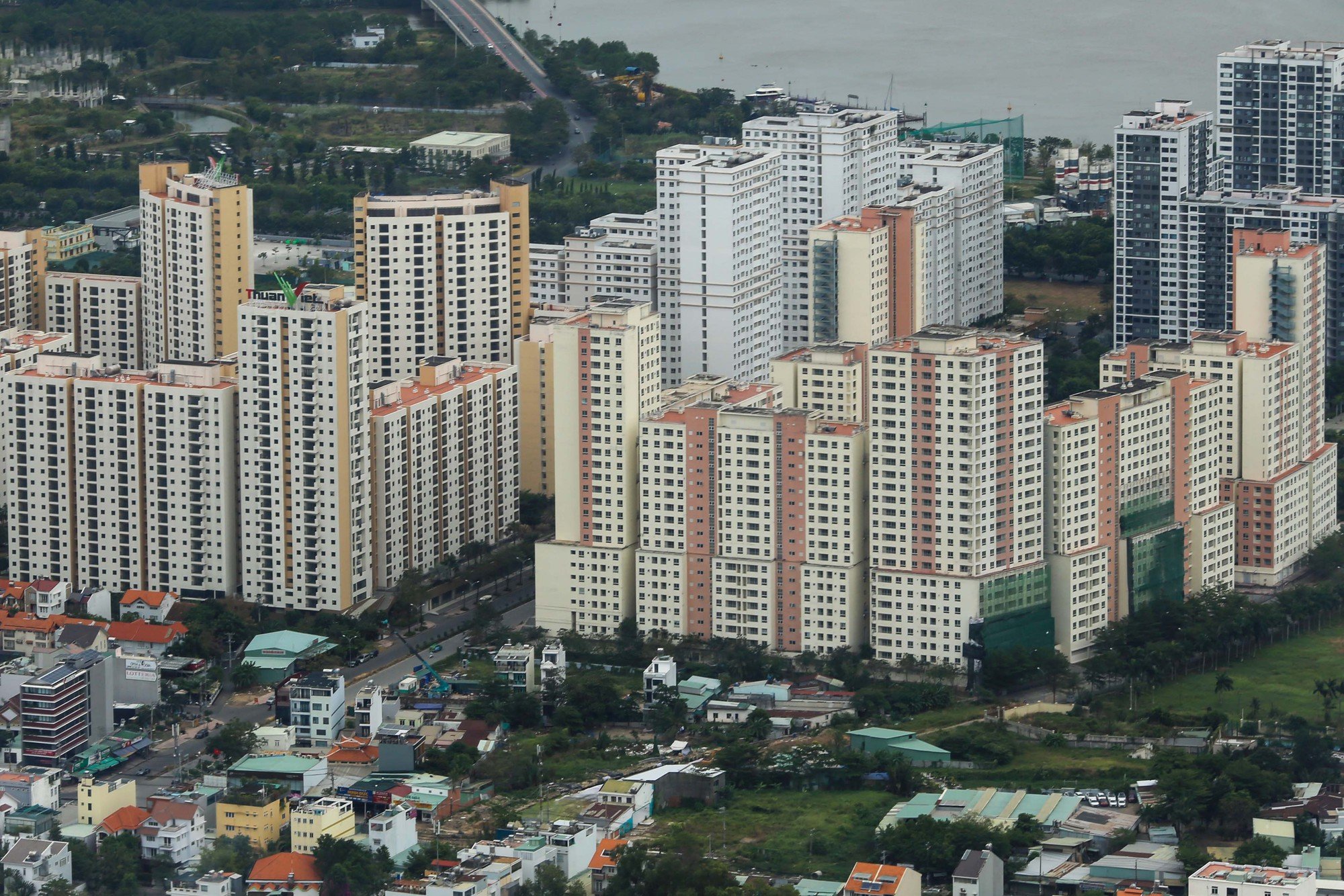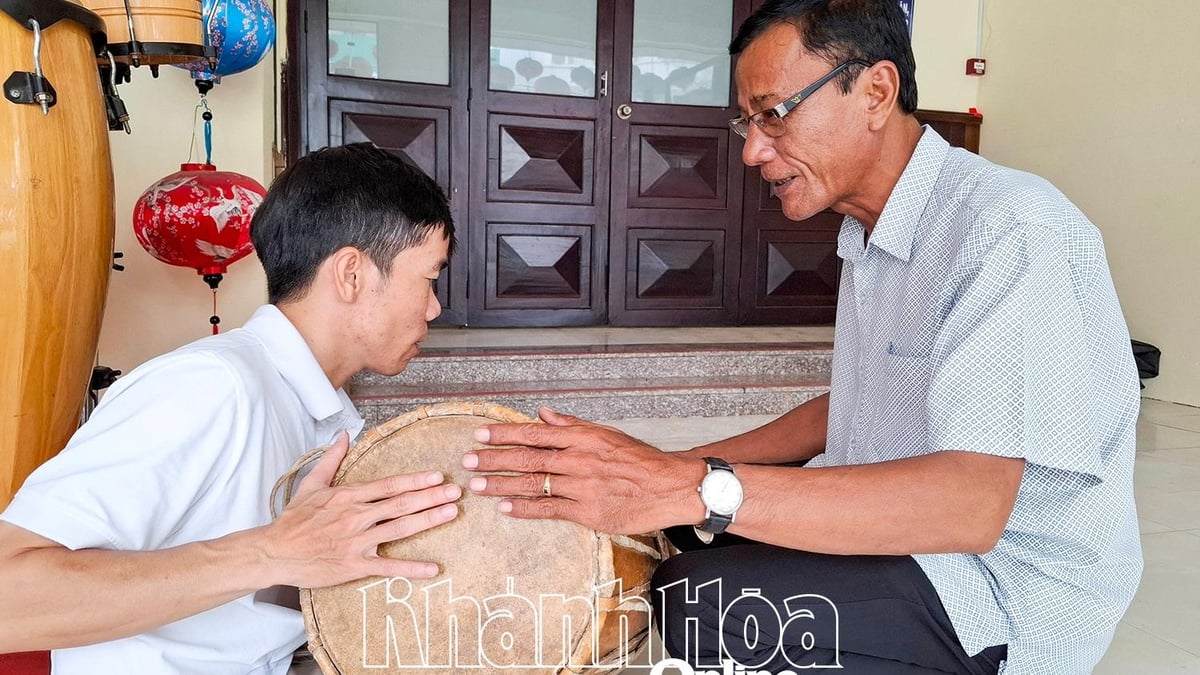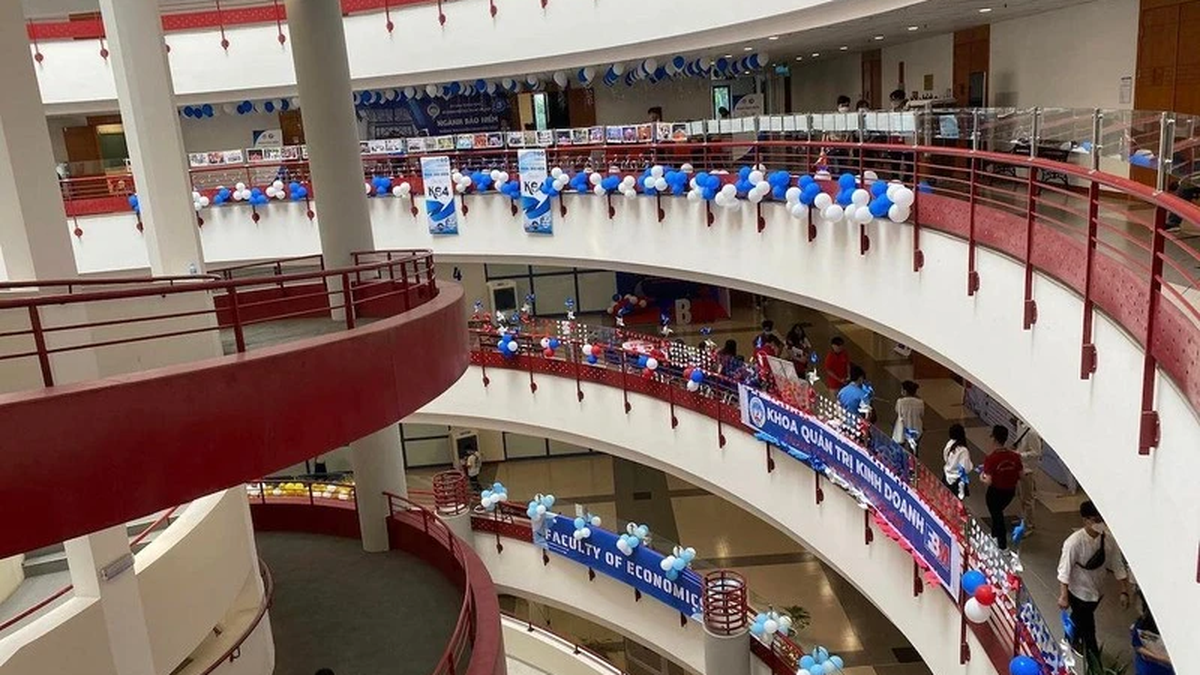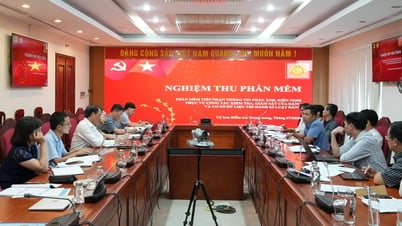REPORTER: The national conference to promote the healthy and sustainable development of the real estate market, scheduled to be held by the Government this weekend, is expected to offer many practical solutions that are close to reality, sir?
- Mr. NGUYEN VAN DINH: After discovering a series of difficulties and problems related to the market and real estate enterprises, the Government and the Prime Minister have issued a series of instructions to resolve them.
In particular, Directive 13/2022 of the Prime Minister on a number of solutions to promote the safe, healthy and sustainable development of the real estate market clearly stated that this market plays a very important role in maintaining macroeconomic stability, controlling inflation, ensuring major balances, and promoting growth. Therefore, it is necessary to remove obstacles and difficulties for the real estate market.

Mr. Nguyen Van Dinh - Chairman of Vietnam Real Estate Brokers Association, Vice Chairman of Vietnam Real Estate Association
The Prime Minister also decided to establish a Working Group to resolve difficulties for enterprises and some localities in implementing real estate projects (referred to as the Prime Minister's Working Group), including members who are leaders of the construction, banking, finance, planning - investment, natural resources - environment, police... sectors.
The national conference to promote the healthy and sustainable development of the real estate market is an opportunity for the Government and the Prime Minister to review and see how far previous directives have been implemented; how obstacles and difficulties have been resolved; and from there, propose solutions for the coming time. This is a very important and meaningful event for businesses as well as the entire market.
Can you point out the difficulties and problems that the real estate market is facing?
- The first problem lies in policies and legal regulations that prevent many projects from "running", being unable to be implemented, and being stalled. The second problem is the problem of capital flow congestion.
Projects in progress do not have capital to implement, unfinished projects do not have capital to continue implementation, consumers also do not have access to credit capital to buy and sell. As a result, transactions in the market are almost paralyzed. These are two fundamental, prominent difficulties that need to be resolved.
What do you think about the recent actions of the State Bank, the Ministry of Construction or the Prime Minister's Working Group on the real estate market?
- The Prime Minister's working group, headed by the Minister of Construction, has taken quite positive actions. The report of the Ministry of Construction sent to delegates before the National Conference on promoting the healthy and sustainable development of the real estate market has basically and fully pointed out the causes leading to difficulties and obstacles in the market. At the same time, many contents have been proposed and recommended to the Government and the National Assembly to resolve these difficulties and obstacles.

Real estate businesses should not only expect support solutions from the government but also need to have the right and effective operating strategy to regain investors' trust. Photo: HOANG TRIEU
The banking sector is currently undertaking a very important task of strictly controlling credit to stabilize inflation and exchange rates, as well as avoiding negative impacts from the world situation. However, if there is no solution to loosen monetary policy to a reasonable extent, it could lead to a situation where businesses are "sick", in crisis, and many workers become unemployed.
We recommend that the State Bank take measures to both maintain macroeconomic stability and stimulate production and business to ensure social security, maintain jobs for people and also retain workers to serve the socio-economic cycle in the recovery period after the COVID-19 pandemic. In other words, policies must "run" - even if not much - so that businesses do not die.
Besides macro-level support policies and the participation of ministries and branches, what should real estate enterprises themselves do to overcome current difficulties?
- People say "in a gourd it is round, in a tube it is long". In difficult circumstances, enterprises must also have a high adaptability to survive and develop. When the market is stable and normal, enterprises can develop normally, even develop strongly. In difficult times, enterprises must know how to "eat smart to be full, shrink smart to be warm". For example, enterprises that are "holding" many projects should consider restructuring, realigning resources... so that the implementation of projects does not exceed their resources. "Being poor but raising many children" is fatal!
In terms of choosing investment segments, when the market is stable and normal, businesses can only enter the high-end segment. But now that high-end products are not selling, investors must adjust their projects, switch to a suitable segment to sell more easily, more people can buy, then they will have capital to rotate operations. In short, in this difficult period, businesses must have appropriate policies and strategies to overcome difficulties.
Regarding the story of corporate bonds, violations by many enterprises have made raising capital through this channel very difficult. What do you suggest real estate enterprises do to regain the trust of investors?
- Perhaps the first thing to do is to design legal regulations that are both transparent and strict to create trust with investors that businesses raising capital through bonds cannot circumvent the law to do wrong. On the contrary, businesses must also have a strategy to regain the trust of investors when accompanying businesses. Specifically, it is necessary to have a professional operation plan, improve project management capacity and the ability to absorb capital flows effectively...
Dr. BUI DUY TUNG, lecturer at RMIT University:
For sustainable development of real estate market
The State needs to continue to improve the legal framework to create a more stable environment for the real estate market, helping project development companies, buyers and sellers to participate in the market with more confidence. The legal system needs to be amended to meet market needs, investment procedures need to be simplified to reduce implementation time. Note that sudden policy changes should be avoided because they can have negative impacts on the market and the economy.
At the same time, it is necessary to strengthen inspection and supervision to quickly detect and prevent all violations of the law, especially tax evasion in the real estate business or illegal subdivision and sale of land. It is also necessary to ensure that project implementation complies with local planning and development plans.
Credit tightening must be carried out in a reasonable manner to avoid increasing instability in the real estate market. At the same time, investing heavily in data and digital infrastructure, building a market information system to enhance the resilience and competitiveness of the real estate industry.
The State needs to have policies to limit speculative and manipulative behavior by promoting transparency and accountability in the real estate market, creating a level playing field for all parties and ensuring that investments are made in a sustainable and responsible manner. Specifically, it is possible to require real estate companies to be transparent and accountable for their periodic financial reports; require companies to provide financial reports and periodic reports to management agencies and investors... This will help increase the level of trust and confidence in the market, avoiding manipulation and speculation.
For the real estate market to develop sustainably, it is necessary to have preferential tax policies and other financial benefits to encourage businesses to invest in green and environmentally friendly technologies. Management agencies should also consider developing alternative sources of finance to serve the needs of the real estate market, such as crowd funding and peer-to-peer lending platforms. These alternative sources of finance can become a necessary source of capital for small and medium-sized real estate developers who do not have access to traditional sources of capital.
Recorded by Thai Phuong
(*) See Lao Dong Newspaper from issue dated February 15
Source: https://nld.com.vn/kinh-te/go-kho-cho-bat-dong-san-cach-nao-giai-bai-toan-the-che-va-nguon-von-20230215212126131.htm






































































































Comment (0)